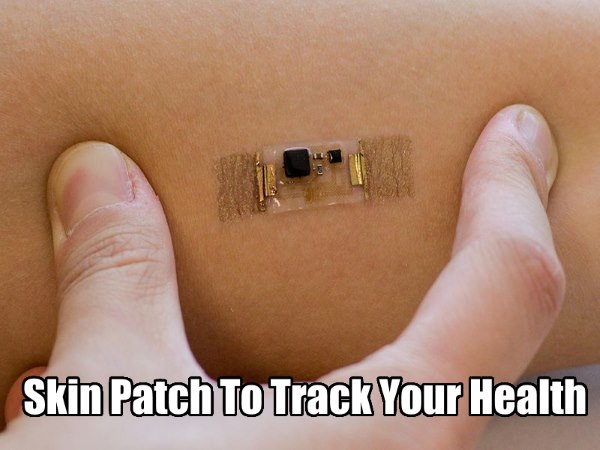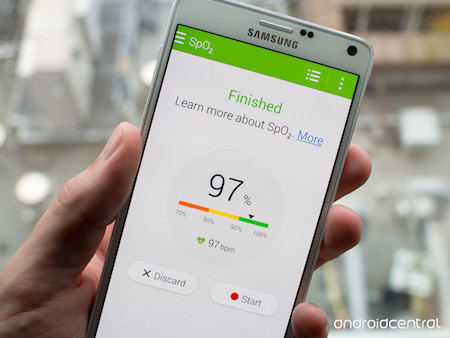There are many ways that we can track our health. We have blood pressure monitors, thermometers, fitbits, even blood sugar tracking patches that dispense insulin.
But a new item, a skin patch health tracker is on it’s way to creep us out as well as track our health. I just read a great article about research taking place right now
A new type of acoustic sensor that resembles a small Band-Aid on the skin can monitor your heartbeat and other health measures, researchers say.
Skin Patch To Track Your Health

The sensor may one day offer a way to painlessly and wirelessly track an individual’s health. The patch, which weighs less than one-hundredth of an ounce, can help doctors monitor heart health, stomach condition, vocal cord activity, lung performance and potentially many other bodily functions, researchers say.
There will be many people that think this is close enough to microchipping people that there will be nervousness about personal freedom with this device, but the advantages to having this would be astounding.
A Health Concept Born Out Of Research
The research team behind this latest example of so-called “epidermal electronics” said the patch is both soft and thin. Its silicone core construction is intended to comfortably match the pliable feel of skin tissue. That makes it easy to adhere and wear anywhere on the body.
The patch is designed to “listen” through skin, tissue and fluid to register the telltale sounds and vibrations generated as you breathe, eat, move and sleep.
Dr. Gregg Fonarow shared Roger’s enthusiasm. Fonarow is a professor of cardiology at the University of California, Los Angeles.
“These types of noninvasive sensors, which have the profile of a small wearable skin patch, are likely to be well received by patients,” he said.
Fonarow especially liked the patch’s potential as a way for physicians to keep tabs on heart disease progression or the post-surgical functioning of devices such as heart pumps.
“However, further study and ultimately randomized clinical trials will be necessary to evaluate the accuracy, effectiveness and safety of such monitors,” he cautioned.
There are other technologies out there like the ones being worked on by Darren Lipomi and the University of California in San Diego.




